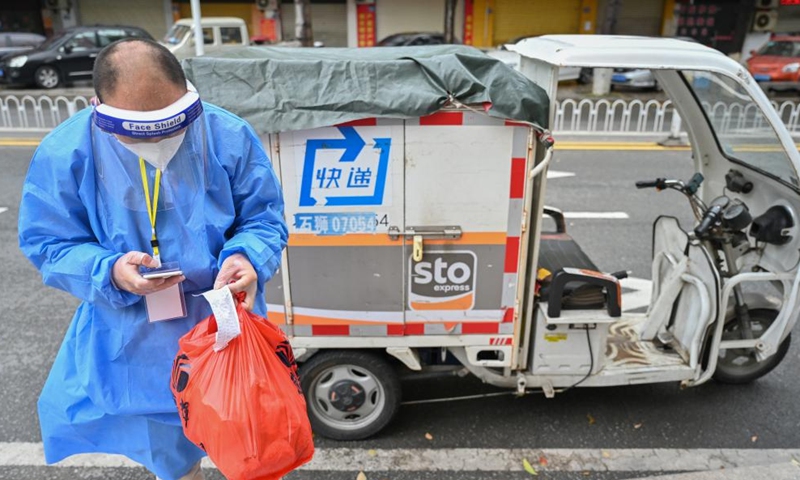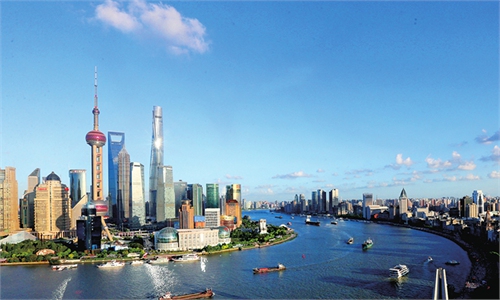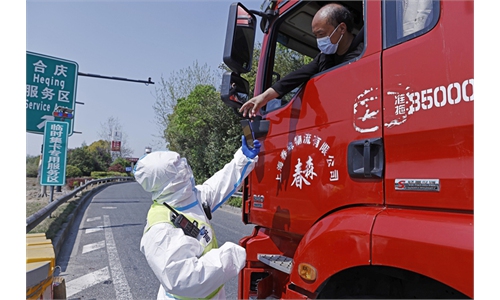China’s top economic planner vows to ramp up efforts in stabilizing logistics, strengthening policy response

A courier contacts a resident over the phone to fulfil an online order in Quanzhou, southeast China's Fujian Province, March 26, 2022.Photo:Xinhua
China's top economic planner said Tuesday that it will make every effort to smooth logistics amid the COVID-19 control measures to meet the needs of both the consumer and industrial economy, meanwhile formulating and improving various response plans to tackle the changing environment.
Vowing to ensure the smooth flow of supply based on precise epidemic prevention and control measures, the National Development and Reform Commission (NDRC) said it will resolutely defend the bottom line of people's livelihood by placing priority on employment and effectively strengthening the guarantee of supply and stable prices of important commodities.
"We will closely follow, study and judge the development and changes of domestic and foreign situations, formulate various response plans addressing uncertainties that may be encountered, strengthen policy reserves, and introduce effective measures in a timely manner to ensure that the economy operates within a reasonable range," an NDRC spokesperson told a press conference on Tuesday.
Chinese Vice Premier Liu He on Monday underlined efforts to keep supply and industrial chains stable at a national teleconference, which underscored a people-centered approach in related work and vowed to improve the working and living conditions of logistics employees and offer them financial support.
The country will leverage funds to help stabilize supply and industrial chains, and will also create a "white list" of foreign trade firms and companies in the automobile, medical and other key sectors, according to the meeting.
The conflict between Russia and Ukraine has pushed up global inflation that was already very high in the developed West as reflected by the price hikes across energy, non-ferrous metals and even food, which has led to a degree of imported inflation pressure in China, driving up the producer price index (PPI), which measures costs for goods at the factory gate.
"China's economy has been deeply integrated into the global economy, and some bulk commodities are heavily sourced from abroad. The increase in international prices will objectively bring imported effects and increase the upward pressure on domestic PPI," the NDRC spokesperson said.
In terms of the PPI developing trend, the official said it is expected that the overall downward trend of PPI will not change during the year as the effect of the ensuring supply policies and stabilizing prices continued to be implemented in addition to the high base effect of 2021, despite of the growing uncertainties linked to the external environment.
China's PPI rose 8.3 percent year-on-year in March, which came at 0.5 percentage points lower than the previous month, data from the National Bureau of Statistics showed, mainly due to the high base of the same period last year.
In terms of food supply, officials said that China's reserves are sufficient, prices are stable and food security is guaranteed. It will strive to expand soybean production while stabilizing grain. Since the beginning of this year, a total of 11.9 million tons of policy-oriented grains have been sold, meeting market consumption needs, it added.
Global Times


